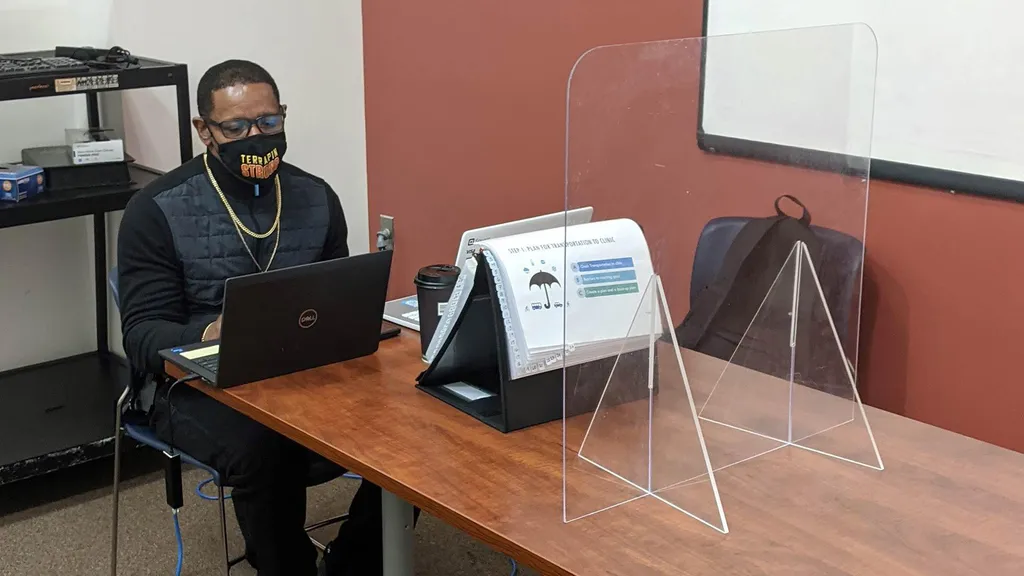- September 15, 2022
- By Rachael Grahame ’17
People with opioid use disorder (OUD) are nearly 30% more likely to stick to their treatment plan when they’re paired with someone who has experienced similar challenges, aka a peer recovery specialist, according to recent findings from a University of Maryland psychologist.
Published last month in the International Journal of Drug Policy, the paper by Associate Professor Jessica Magidson details a pilot study focused on helping 37 Baltimore residents to remain engaged in OUD treatment over the course of three months.
The success of the program outlined in the publication resulted in a new $2.6 million award from the National Institute on Drug Abuse through the National Institutes of Health’s Help to End Addiction Long-term (HEAL) Initiative. Magidson’s team will be able to conduct a second phase of its study that more than quadruples the original number of participants, doubles the time it will follow each one, and brings the project’s five-year funding total to approximately $3.5 million.
“In the past five to 10 years, peer recovery specialist programs have been exploding. This is really exciting, but I think in some ways it’s expanded more quickly than the evidence,” said Magidson who is investigating the efficacy of peer assistance in HIV treatment in another project. “The questions have been: What exactly should peers be doing that is going to be most helpful? What are structured, evidence-based programs that peers can follow that also allow them to still integrate their own lived experience?”
Magidson’s model integrates those experiences—what she calls the “magic ingredient”—into an evidence-based intervention. Known as “behavioral activation,” it helps those receiving treatment identify things they value that are not connected to drugs or alcohol and create day-to-day activities around them that help participants stay the course.

A key tool to help peer advisers successfully interact with people in treatment is a flipbook of images and icons to symbolize values like relationships and physical health on the participant’s side and talking points on the peer’s side.
“The flipbook gives the participants a visual, for people to be able to see what we’re talking about,” said Dwayne Dean (left, with flipbook), the peer recovery specialist who helped lead the intervention in the previous study. “And for me as the peer, it helps me to guide them because I get to see on my side of the flipbook everything they see, plus some somewhat scripted lines.”
Dean met with each study participant once per week for 30-60 minutes, observing many successes. This past summer, for example, one formerly homeless participant reached out to share that he had just celebrated one year of sobriety, is currently working, and has reunited with his wife and daughter.
Recruitment for the next phase of this study engages co-investigators from University of Maryland School of Medicine at the University Maryland, Baltimore: Dr. Aaron Greenblatt, a family medicine physician and opioid treatment provider, and Drs. Melanie Bennett and Annabelle “Mimi” Belcher of the Department of Psychiatry. Study results are expected in March 2025.
“One of the things that's most exciting about these findings—and hopefully this larger trial—is that we have the empirical support to show that this peer intervention actually works,” said Magidson. “Our hope is that ultimately, if this continues to be helpful for people, that it could be incorporated into state certification and training programs for peers broadly.”
Topics
Research